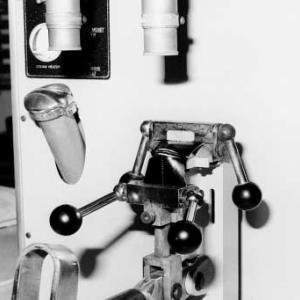Test Method: SATRA TM116
Hot stress cracking of patent leather finishes - Zwick method
August 2000

SCOPE
This test method is intended to determine the propensity to cracking of a polyurethane patent leather during shoe manufacture as a result of lasting and heat setting, also during wear. The method is applicable to all polyurethane patent leathers and can also be used to assess ‘orange peel’ effects and other surface marring on all coated leathers.
PRINCIPLE
A test specimen is heated in hot air and then stretched rapidly, to a pre-determined extension, over a metal mandrel which simulates the toe of a last. It is then further treated with hot air, to simulate heat setting. Any resulting damage such as cracking is assessed. Cracking in footwear often originates from stitch holes, so both plain and perforated test specimens are tested.
REFERENCES
This Test Method does not reference any additional Standards or Test Methods.
HISTORY
First issued September 1983. Revised August 2000.
AVAILABILITY
This test method is available to members and non-members.
PRICE (ex. VAT)
This price is for a printed copy of the Test Method.
- Members: £84
- Non-members: £242


 EN
EN ZH
ZH